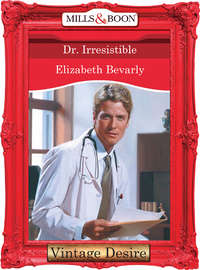
Полная версия
Express Male

“So what’s your code name?”
Marnie met the faux-security-guard-turned-special-agent’s gaze and continued, “I mean, I can hazard a few guesses, but none of them is worth uttering in polite society.”
“I owe you an apology,” he said in an amazingly courteous voice.
“Yeah, I’ll say you do,” she retorted before she could stop herself. “What brings on this sudden change of heart?” For such a supersecret, sophisticated organization, they sure seemed like a bunch of boneheads.
“We ran a check on your name,” he said, “and we realized you are indeed who you say you are.”
“Why didn’t you run a check like that the minute I got here?” she demanded.
“We were convinced you were Lila trying to pull a fast one. We didn’t have any reason to believe you were who you said you were.”
Marnie nodded slowly. “Okay,” she said. Even though she was still suspicious of the sudden turnaround. “So does this mean I can go home?” she asked hopefully.
He nodded. “I’ll drive you myself….”
More delicious “special deliveries” from
ELIZABETH BEVARLY
and HQN books
You’ve Got Male
Overnight Male
Express Male
Elizabeth Bevarly

For the Robinson women.
All four generations.
We rock.
CONTENTS
CHAPTER ONE
CHAPTER TWO
CHAPTER THREE
CHAPTER FOUR
CHAPTER FIVE
CHAPTER SIX
CHAPTER SEVEN
CHAPTER EIGHT
CHAPTER NINE
CHAPTER TEN
CHAPTER ELEVEN
CHAPTER TWELVE
CHAPTER THIRTEEN
CHAPTER FOURTEEN
CHAPTER FIFTEEN
CHAPTER SIXTEEN
CHAPTER SEVENTEEN
CHAPTER EIGHTEEN
CHAPTER NINETEEN
CHAPTER ONE
AN AWED SILENCE FELL over Carnegie Hall as Marnie Lundy strolled confidently across the stage in her elegant black formal, the flowing crepe whispering about her wrists and ankles with every step. The darkness of the auditorium hid the thousands of eyes she knew were fixed upon her, but she wavered not once. Smiling to herself, she recalled, as she always did when she took the stage, the old Bugs Bunny cartoon where the celebrated symphony conductor Leopold appeared amid hushed and reverent murmurs of “Leopold. Leopold. Leopold.”
Tonight, however, there was no symphony. Tonight, there was no conductor. Because tonight, Marnie Lundy, concert pianist, would solo for thousands of her admirers. Tonight, the hushed and reverent murmurs were of “Marnie. Marnie. Marnie.”
She threw back her head, shaking silvery blond hair over her shoulders, and seated herself gracefully on the bench. Her posture was impeccable, the piano was tuned to perfection and her knowledge of the music was complete. The gods were smiling, the planets were aligned and all was right in the universe. Lifting her hands to the keys, she gently stroked the ivory, filling her ears and her mind and her heart with the lovely, lilting strains of—
“Hey, lady, where’s the bathroom?”
She squeezed her eyes shut tight, sighing with much eloquence as her fingers went still. “It’s behind you,” she said glumly. “Through ladies’ hosiery and designer handbags, in men’s sportswear. Next to the Tommy Bahama display.”
“Thanks, toots.”
When she opened her eyes, it was to see a stout, balding man in an ugly Hawaiian shirt and enormous pants waddling away in the direction into which she’d sent him. Instead of a darkened Carnegie Hall, she was seated in the middle of a brightly lit department store—Lauderdale’s of Cleveland, to be precise—where Marnie Lundy appeared every Monday, Wednesday and Friday evening playing the piano. And where she appeared hawking overpriced underwear in the lingerie department other days. The black crepe formal was actually a straight, gray cotton skirt and light blue sweater set, and the silvery blond hair was really more of the dishwater variety. It was long enough to throw over her shoulders, though, if she wanted to. But that didn’t happen often, since it was generally twisted into a loose knot atop her head, as it was now.
Alas, the thousands of adoring eyes Marnie had imagined worshipping her actually amounted to only eight, mostly indifferent ones: two on the face of a young mother seated on a sofa near the piano (the two on the baby to whom she was feeding a bottle were closed), two on the bored saleswoman in ladies’ hosiery, two on a teenage girl who was clearly trying to decide if anyone would notice her tucking the Kate Spade wallet she was fingering into her jacket pocket and two on the face of the store manager, who really should have been keeping his eyes on the teenager in Kate Spade instead.
Fortunately, those final two eyes were approving of Marnie. Unfortunately, they were a little too approving. In spite of his name, Bob Troutman wasn’t much of a catch. Not just because he was a greasy, revolting little fish-faced man—though, granted, that part was pretty off-putting. But also because he had a wife and four little Troutmans living with him at the bottom of whatever contaminated body of water he called his habitat. All told, it was enough to put Marnie off her lunch whenever she saw the guy. Which was why she always looked away whenever she caught him watching her. Like, for instance, now.
Dropping her gaze back to the piano keys, she repositioned her fingers and played the opening bars of “Stardust.” In her Carnegie Hall fantasy, she would have flawlessly performed Chopin’s Polonaise in A flat, but here at Lauderdale’s, old standards were de rigueur, since so many of Lauderdale’s shoppers were little old ladies who remembered when cotton briefs only cost ten cents a pair. And, boy, don’t think Marnie didn’t hear about that every day of the week, either.
Still, it was a decent job, as jobs went. The pay wasn’t great, but it had flexible hours and gave her the time she needed for other pursuits, like writing her music and giving lessons to her young students. She’d never been one for setting the world on fire, Carnegie Hall fantasies notwithstanding. Having grown up as the only child of a widowed, never-again-married English professor father, hers had always been a quiet life, and that still suited her. Working for Lauderdale’s enabled her to keep living that way.
Well, except when Bob Troutman’s scaly bad self was on the prowl. On the swim. Whatever. But if he was the worst thing that ever happened in her life—and so far, hands down, he was—Marnie would die a happy, tranquil woman.
The music flowed from her fingertips for the three hours she was scheduled to play—interspersed, it went without saying, with periodic directions to the bathroom, the elevator and better dresses. At closing, she straightened up for whoever was scheduled to play in the morning, tidying with what a couple of the other pianists had called her obsessive-compulsive neatness. Well, could she help it if she liked the sheet music alphabetized? And then put in numerical order according to the year it was written? Things like that brought order to a troubled civilization. The world would be a better place if more people took a few minutes out of their day to alphabetize and put stuff in numerical order.
But Marnie had to take more than a few minutes that evening, because whoever had played over the weekend had really fouled things up. That was why, when she finally found her way to the employees’ exit at the back of the store, there was no one left for her to walk out with. Not that Lauderdale’s was in a bad part of town—on the contrary, this part of Cleveland was quite upscale—but no woman relished entering a dark, deserted parking lot alone. The presence of a few cars indicated there must still be a handful of people around somewhere, so she decided to wait.
Fifteen minutes later, she was growing impatient. She could see her car from where she stood, she reassured herself, right in the middle of the lot beneath a streetlight, with nothing parked near it. Pulling her keys from her purse, she jingled them merrily in defiance of the unwelcoming darkness.
There. Take that, Mr. Bogeyman.
But Mr. Bogeyman snapped back when she took her first step through the exit. The night was heavy and damp from rain earlier in the day, and even darker than usual thanks to thick clouds looming overhead. The streetlights dotting the parking lot radiated fat, milky halos of light that never quite reached the pavement, trapping moisture within. Something about the sight made Marnie feel trapped, too. A faint shudder of apprehension stole down her spine, and goose bumps rioted on her arms beneath the sleeve of her sweater.
How strange. She was one for neither whimsy nor portent, never succumbed to omens or premonitions or shudders down the spine and goose bumps under the sleeve. Whatever she was feeling now was unfounded and silly. Today had been like any other day. Tonight would be no different.
With her purse dangling from one bent elbow, she buttoned up her sweater against the cool April evening and squared her shoulders. This was silly, this unfounded aversion to nothing, and honestly, she’d walked through this door and into this parking lot hundreds of times without suffering so much as a stubbed toe, and I mean really, stop being so ridiculous. Marching forward with renewed purpose, she strode into the night. And she got almost all the way to her car before she felt a hand clamp down on her shoulder. Hard.
She cried out as she spun around.
Then halted at once when she saw that the hand was attached to the arm of a tidy, wizened little man who was shorter even than she. And since Marnie stood no more than five-three on a good day—in one-inch heels—that was saying something. The man wore an aged brown suit, and his gray hair was slicked straight back from his face, though whether that was due to the damp air or some kind of hair goo favored by elderly men, she couldn’t have said. His features gave him the appearance of being kind, sweet even, and he smiled benignly at her reaction.
“I’m so sorry,” he said gently. “I didn’t mean to frighten you.”
Marnie smiled back, though the gesture was less a greeting than it was a reaction to profound relief. This guy probably didn’t weigh much more than she did, and couldn’t possibly be dangerous. Probably, he was a shopper who’d lost his way to his car and wanted help finding it. Certainly he wasn’t menacing.
Until he said, “I’m so relieved to have found you, Lila. I was beginning to think they weren’t going to send anyone. I was beginning to think they didn’t even believe me.”
That was when Marnie began to suspect that the guy, however unassuming, might just be a stark raving lunatic, and maybe it was something other than his car that he was looking for, and maybe it would be a good idea for her to throw up her hands and run screaming like a ninny in the other direction.
Not wanting to be an alarmist, however, she replied instead, “I beg your pardon?”
The man smiled his kindly smile again. “I wasn’t expecting them to send you, though, Lila, since this is something one of the junior operatives could have handled. Still, using a department store for the exchange is quite ingenious. I just wish I’d had some warning. I couldn’t believe it when I saw you working last night. One minute, I was looking for a birthday present for my daughter—she loves those big flannel pajamas, you see, especially the ones that have some kind of happy-hour motif. Though I myself kind of worry about her in that regard. She really does drink too much sometimes, and…” He blinked rapidly a few times in succession, as if he were confused—thank God, Marnie wasn’t the only one—then asked, “Where was I?”
“Um, happy-hour pajamas?” she prodded. Though, really, he was someplace that Marnie would just as soon not visit. La-la land.
“No, before that,” he said, tapping his head lightly, as if that might stimulate his brain. Good luck on that, Marnie thought.
“Oh, I remember now,” he finally said. “One minute I was shopping for my daughter, and the next minute, I saw one of the most dangerous women in the world straightening underwear at Lauderdale’s. Obviously, when I saw you, I knew you were waiting for me to make the exchange. Though it would have been nice if someone had told me you’d be here,” he added in a chastising voice. But before Marnie could utter a word in response—not that she had any idea what to say—he hurried on, “Anyway, I stayed up all night last night getting my opus together, and I waited until closing time tonight to give it to you. I didn’t want anything to interrupt us.”
He spoke so quickly—and so strangely—that Marnie was feeling dizzy by the time he paused for breath. What little sense she did make of his speech left her even more confused. Clearly, the man had mistaken her for someone else. Possibly, he was a tad delusional. Conceivably, he was quite mad. Suddenly, the parking lot seemed a lot more menacing than it had before. Suddenly, her aversion to leaving the store by herself didn’t seem silly at all.
A quick glance around indicated she was still well and truly alone—alas—so it might serve well to just play along for a minute and pretend the guy was making sense. At least until she figured out how she could make the short sprint to her car without giving him enough time to whip out a carving knife.
“I beg your pardon?” she asked again.
The man’s eyes went wide, and he covered his mouth with one hand in an uh-oh-what-have-I-done gesture. “Oh, of course,” he said in a chastened voice. “I’m not supposed to call you Lila, am I?” He made a fist and gently tapped his forehead. “Silly me. I’ve been out of the service too long. And that little run-in with the KGB years ago didn’t help.” He smiled at Marnie again. “What name are you going by on your current assignment, dear?”
Current assignment? Marnie repeated to herself. Run-in with the KGB? Oh, yeah. Definitely delusional. “Uh…Marnie,” she said without thinking. But that was probably okay, wasn’t it? As long as she didn’t give him her last name, she should be fine, right?
He nodded as if he understood completely. Well, that made one of them. “Marnie. Of course. Was it chosen by He Whose Name Nobody Dares Say?”
Oh, yeah. Definitely quite mad. “Um, actually, it was my father,” she told him.
“Ah.” The little man nodded in a way that made her think he knew something she didn’t. She hated to think what. “I had no idea the two of you were related,” he continued. “How did that get by me? That must have aided your quick climb up the professional ladder. Not to imply that your ruthlessness and intelligence and complete flouting of personal safety weren’t also responsible,” he hastened to add. “And it’s a lovely name.” He winked at her before adding, “Marnie.”
“Thank you,” she said. She tried to backtrack to the exact moment when her life had slipped into the surreal. In hindsight, it probably hadn’t been a good idea to have that kielbasa from Hank’s Franks at the mall food court for dinner. Just how long had it been on the rotisserie anyway? Maybe she should have risked the long line at Ruthie’s Smoothies.
Not that a digestively generated hallucination was her biggest problem at the moment. Especially since her new bestest friend in the world—or, at least, Lila’s bestest friend in the world, whoever she was—seemed to be getting excited about something. And gosh, Marnie really hated to think what.
“Although I must say, it’s not just your high-ranking status that makes me surprised to see you in Cleveland. Last I heard, you were on a leave of absence in Las Vegas. And then there was that rumor about you having tried to kill—”
He stopped abruptly, his expression indicating he’d almost said something he would regret later. Funny, that, since Marnie was regretting it right now. He’d mistaken her for someone who’d try to kill someone else? That couldn’t possibly be good, could it? Thankfully, he hurried on before she had a chance to think too much about that. Or experience a stark, raving panic attack.
“Well,” he said, “let’s just say I’m glad you’re here. For a number of reasons.”
“Um, look,” she interjected as gently as she could, thinking it would probably be best if she didn’t hear any of those reasons. “You’ve obviously mistaken me for someone else. My name isn’t Lila. It’s Marnie. I’m sorry I’m not who you’re looking for, but…” She shrugged, the internationally recognized sign language for Can’t help you, fella.
“Of course you’re not who I’m looking for,” he said. “I should have realized that right away.”
Marnie would have breathed a sigh of relief, but the little man took a step closer, looked first one way, then the other, then leaned in very close, crowding her personal space way more than she liked.
“I didn’t realize we were being watched,” he whispered so softly she almost didn’t hear. “I should have realized.” He moved a hand to his mouth to mimic the locking of a lock and throwing away of the key. Very quietly, he promised, “From now on, I’ll just call you Marnie, Lila. I won’t call you Lila anymore, Marnie.”
Since he was so close, Marnie took advantage of the opportunity to inhale a deep breath, to see if it might offer some clue as to what he had been drinking. Smoking. Sniffing. Absorbing subcutaneously. All of the above. But there was nary a hint of alcoholic, herbal or chemical enhancement about him. A touch of garlic, perhaps, but as far as she knew, garlic had never driven anyone around the bend like this.
He did that look-one-way-then-the-other thing again, then held up a fat manila envelope that had seen better days. It was stuffed about as full as it could be and still be closed, the flap torn and bent, the paper soiled and wrinkled. Two big rubber bands were wound around it, one vertically and one horizontally, as if he feared the envelope might give way and spill its contents any moment, something that seemed entirely possible. Then he smiled again.
“Here’s my book,” he said. “I finished it, just as I promised them I would.”
Book? Marnie wanted to say. That was no book. It was just a big, dirty envelope full of papers. Why would he bring it to her? To Lila? To anyone? And just who was the “them” he was talking about?
“It’s only a first draft, you understand,” he hastened to add, “but it is my greatest opus.”
Ooh, it was a book he’d written. Now Marnie really didn’t want to have anything to do with it.
“Um, that’s really nice, and I appreciate it,” she said as politely as she could. She glanced around again, hoping somebody might have shown up by now. At this point, she’d even welcome the appearance of Bob Troutman. Well, probably. Maybe. Oh, okay, she could handle this little guy for a few minutes more. “But I’m probably not the best person to give it to,” she added. “I’m not much good when it comes to literary criticism. I’m more of a music person.”
“No, no,” he insisted, his smile falling some. “You’ll like this, no matter what. I assure you, it’s a wonderful opus.”
There was that word opus again. He really seemed to be attached to it. “Oh, I don’t doubt that for a minute,” Marnie assured the man. “But, honestly, I just don’t think I’m qualified to—”
“It’s the story of a powerful sorcerer,” he interrupted in a singsongy, once-upon-a-time voice. “A sorcerer who has betrayed people, and who’s been hiding from those people, hoping they won’t find him.”
“Um, sounds great,” Marnie said flatly, not wanting to encourage him—especially since fantasy novels really weren’t her thing. “But, really, I—”
“This book tells all about this sorcerer,” the man began again, emphasizing that last word meaningfully. Meaningful to him, anyway, since Marnie had no idea what he was talking about. “It tells things about the sorcerer no one knew before. And it tells about where the sorcerer has been hiding and what he’s been up to. It tells about where he’s going next. You’ll like it, I promise.” He winked at her again, a gesture that was beginning to creep her out. “It is my finest opus,” he said again.
Hoo-kay, Marnie thought. Whoever this guy was, he’d caught the express train from la-la land and hopped off at weirdsville. And now he was looking around for the platform for his connection to loonytown.
He shoved the envelope at her again, using both hands now. “Take it,” he insisted. “Read it. Read my opus about the sorcerer.”
He was growing agitated now, and Marnie wasn’t sure what crazy people did when they became agitated. Nor did she have any wish to find out. She wondered if she should just take the envelope from him and hope that would make him leave. Then she could return to Lauderdale’s and alert mall security about the incident and go home.
“Um, okay,” she said as she warily took the manuscript from him. “I’ll read it tonight. How will that be?”
“It’s just a first draft,” he reminded her. “I have many notes, and will write more. When it’s done, I’ll bring it to you.”
Oh, goody. “Well, that’s…that’s just fine,” Marnie said, nodding. Hoping he fell for her fake smile. Hoping he went away soon. Hoping he didn’t hack her to death with a carving knife on his way. “I’ll, um, I’ll really enjoy that.”
He nodded, too, his own warm, benign smile so at odds with his stark, raving lunacy. “Thank you, Lila. Oops, I mean…Marnie.” He winked again, and she tried not to flinch. “I know where to find you now,” he added. As if she really needed for him to put that fine a point on it. “And I’ll contact you again when the time is right.”
Now there was something to look forward to. She held up the hefty manuscript. “I, um, I’ll read this tonight,” she said again, since he didn’t get the hint the first time and leave.
“Good,” he said. “Take good care of my opus. Marnie.”
“I will,” she told him. “I promise your opus is safe with me.”
His smile went kind of sentimental and satisfied and serene at that, and his expression softened to the point where he looked almost lucid. Relief, Marnie realized. He looked profoundly relieved about something. As if by taking the manuscript from him, she had just freed him of a burden that had been almost too much for him to bear.
He leaned in close again and said quietly, “I knew not to believe what they were saying about you, Lila. I knew you could never do what they said you did. I trust you completely. I always have. And I’m so glad you’re back. They need you.”
Strangely, there was something about the way he said it, and the way he looked at her, that made Marnie feel honestly grateful for his trust. Something that made her want to promise him she would do anything for him in return. Suddenly, he didn’t seem mad at all. In fact, he seemed quite sane, and quite sincere. Before she realized what she was doing, she reached out to touch his shoulder, the physical contact feeling surprisingly nice. Surprisingly comfortable. Surprisingly comforting. It was the oddest thing.
“I will take care of this,” she told him as she held up the manuscript, “whatever it is.” And she was astonished to discover that she meant exactly what she said. “You don’t have to worry about it anymore, okay?”
He nodded and smiled again, then lifted a hand in farewell. “I’m glad it’s with you…Marnie,” he said. And without another word, he turned and walked away.
Marnie stood motionless in the middle of the deserted parking lot as she watched him go, mesmerized by his steady, purposeful stride. Not once did he look back, clearly content with how their exchange—whatever it had been about—had gone. She waited for him to approach one of the half-dozen cars still scattered in that direction, but he kept walking until he reached a hedgerow at the edge of the parking lot. She watched, amazed, as he pushed the branches of two bushes aside and stepped through them.








